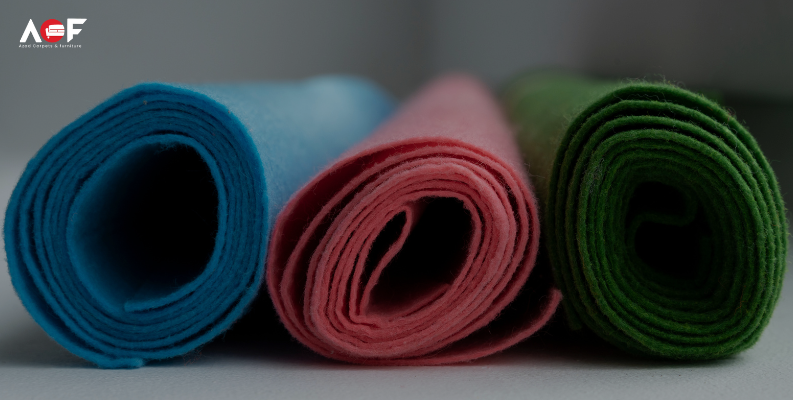How Long Does Underlay Last?
Depending on various factors including foot activity, environmental conditions, maintenance, and material quality, underlay can last anywhere from 10 to 30 years. Meanwhile, the inferior foam may need to be replaced after 10 years. High-quality rubber or felt underlays typically last closer to thirty years. Regular maintenance will keep your flooring cozy and strong for many years. There are possibilities from trustworthy sellers and suppliers like Azad Carpets if you’re looking for flooring solutions.
Overview of Underlay and Its Significance
In any flooring system, underlay is essential. It acts as a barrier between your subfloor and surface flooring, offering insulation, soundproofing, and cushioning. Regardless of whether your flooring is carpeted, laminate or vinyl, underlay increases comfort and prolongs its lifespan.
Types of Underlay and Their Lifespans
Underlays are made of a variety of materials, each with special advantages and lifespans:
| Type of Underlay | Expected Lifespan | Best Use Cases |
| Foam | 8-10 years | Low-traffic areas like bedrooms. |
| Rubber | 15-30 years | High-traffic areas like hallways. |
| Felt | 10-20 years | Carpeted living rooms or dens. |
| Combination | 15-20 years | Balances durability and cost. |
- Foam Underlay
Foam is a popular option for homes on a tight budget since it is affordable and lightweight. Its lifespan is limited to around 8–10 years due to its tendency to compress under severe use.
- Rubber Underlay
Rubber is strong and thick. It has a lifespan of 15 to 30 years. Because it can stand continuous foot activity without losing its form, it’s perfect for crowded settings.
- Felt Underlay
A classic choice for carpet underlays is felt. It usually lasts 10–20 years. It offers great insulation and support.
- Combination Underlay
With a lifespan of up to 20 years, this underlay type offers a balance between price and durability by combining the qualities of foam and rubber.
Factors Influencing Longevity Underlying
The following factors affect how long your underlay will last:
- Foot Traffic
Over time, heavy foot activity compresses the underlay, especially in crowded places like hallways and doorways. In these areas, choose durable materials like rubber.
- Levels of Moisture
One major opponent of underlay is moisture. Damage can be avoided in wet situations by using moisture-resistant products or adding vapor barriers.
- Type of Flooring
Lightweight flooring choices like vinyl or laminate put less strain on the underlay than heavy flooring materials like hardwood.
- Material Quality
High-quality underlays are a wise investment because they last a lot longer than less expensive options.
- Quality of Installation
Premature wear is avoided and even distribution is guaranteed with proper installation. To ensure long-term effectiveness, professional installation is frequently advised.
Advice on Taking Care of Your Underlay
Take into account the following upkeep advice to extend the life of your underlay:
- Maintain Clean Flooring
Frequent sweeping and mopping stops the underlay from being worn down by particles.
- Manage the Wetness
In wet spaces, such as basements, use dehumidifiers to prevent mold growth and decay.
- Furniture Rotation
Heavy furniture should be moved frequently to prevent long-term harm to the underlay.
- Examine Frequently
Look for wear signals like uneven flooring or lower cushioning, and take quick care of any problems.
Check products from reliable sources, such as Azad carpets and Furniture for further information on floor maintenance and cures.
FAQs Regarding the Longevity of Underlays
1. What elements affect the longevity of underlay?
The material, quality of installation, amount of foot activity, and moisture exposure all affect how long an underlay lasts.
2. How can I make my underlay last longer?
Keep the space dry and tidy, arrange the furnishings carefully, and take care of any damage right away.
3. When should my underlay be replaced?
If you observe uneven flooring, decreased comfort, or obvious tears and damage, replace the underlay.
4. Is underlay required for every kind of flooring?
Underlay enhances the comfort and longevity of vinyl, laminate, and carpets, while it is not required for all floors.
Conclusion:
Any flooring system must include underlay because it provides longevity, comfort, and support. It may last 10 to 30 years with the correct material and maintenance, extending the life of your flooring and improving your comfort level in general. If you are looking for high-quality underlay, you should look into the alternatives offered by trusted suppliers.


Comments are closed